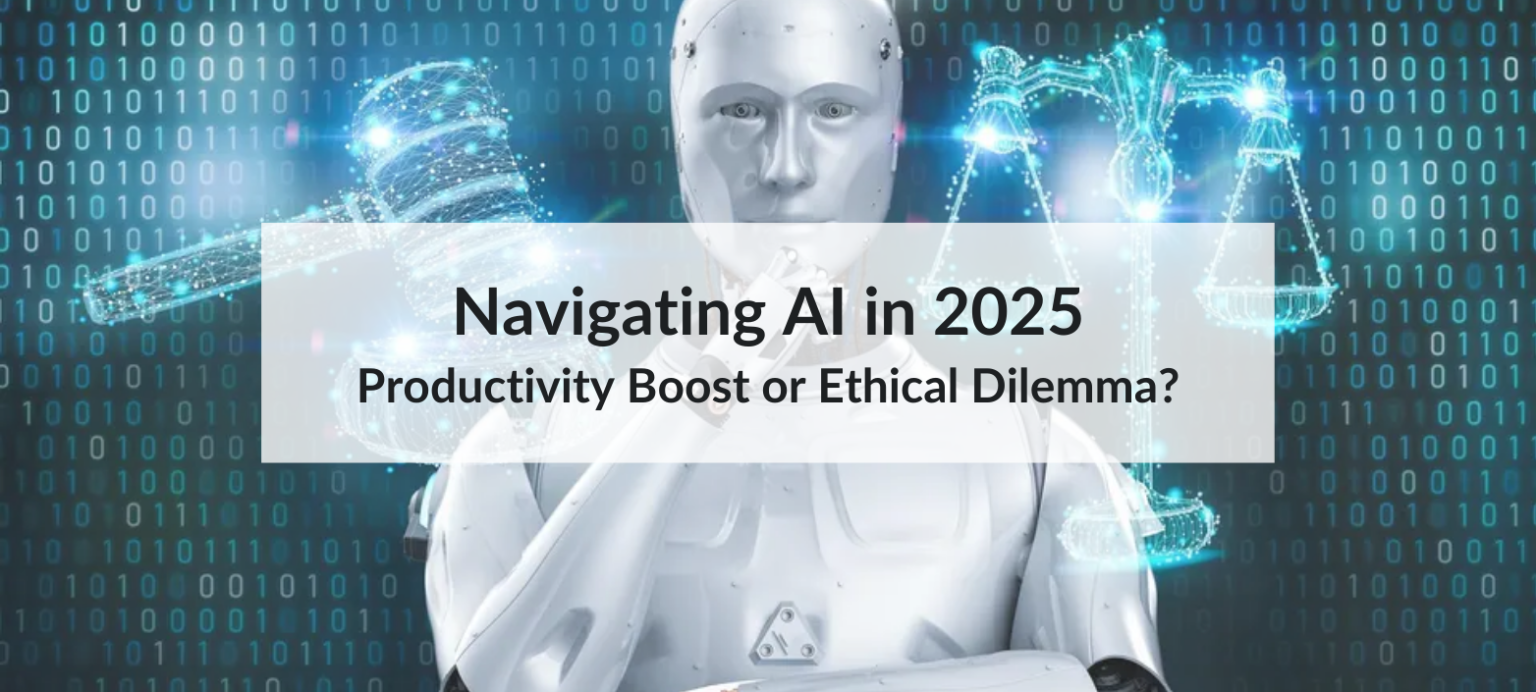The growing adoption of artificial intelligence (AI) has raised critical ethical questions about its role in professional settings. While AI offers undeniable benefits, such as increased productivity and efficiency, concerns about fairness, accountability, and transparency highlight the importance of adhering to principles of Ethical AI—ensuring that AI systems are developed and deployed responsibly. This debate is especially prominent in areas like content generation, hiring practices, and decision-making processes.

Concerns of Ethical AI in Content Generation
AI-generated content has become a cornerstone for many businesses. Tools like ChatGPT and Jasper produce blog posts, marketing copy, and even creative works. However, ethical concerns include:
- Authenticity: Critics argue that over-reliance on AI blurs the line between human and machine-created content, potentially misleading consumers.
- Intellectual property: AI tools often train on existing works, raising questions about copyright and ownership.
Stat Spotlight: A survey by Forbes in 2024 found that 62% of marketers expressed concerns about the originality of AI-generated content.
Additionally, AI-generated content can sometimes lead to misinformation if not properly monitored. For instance, automated news-writing tools have inadvertently spread incorrect details when fed inaccurate data. Ensuring proper oversight is essential.
Bias in Decision-Making
AI systems are often used in hiring processes, lending decisions, and law enforcement. However, the risk of bias persists:
- Algorithmic bias: Systems may reinforce existing inequalities based on biased training data.
- Accountability: When errors occur, determining responsibility can be challenging.
Example: In 2023, a major tech company faced backlash when its AI hiring tool was found to favor male candidates over equally qualified female applicants.
Efforts to mitigate bias include using diverse datasets during training and regularly auditing AI systems. Despite these steps, biases can still emerge, highlighting the need for continuous improvements and external oversight.
Balancing Productivity and Fairness
AI undeniably boosts productivity. For instance:
- Automated hiring tools reduce time-to-hire by up to 30%.
- Predictive analytics improve decision-making in marketing and sales.
However, these benefits must be balanced with ethical considerations. Transparency and regulation are essential to ensure fair practices. Businesses are beginning to establish internal AI ethics boards, which regularly review the implications of deploying new AI systems.
Industry Insight: A Deloitte survey revealed that 58% of companies implementing AI ethics policies saw improved trust among their stakeholders.
Industry Perspectives
Tech leaders and experts have weighed in on the debate:
- Satya Nadella, CEO of Microsoft, emphasized the need for “human-centered AI,” where technology enhances human capabilities rather than replacing them.
- Timnit Gebru, AI ethics researcher, warns that unchecked AI development could perpetuate harm, advocating for stronger accountability measures.
Further, industry groups like the Partnership on AI have called for global standards in AI development to ensure consistency in addressing ethical issues. These initiatives are critical as AI adoption continues to grow.
Real-World Implications of Unchecked AI
When AI is deployed without ethical oversight, the consequences can be far-reaching:
- Deepfake content proliferation: AI-generated deepfakes can manipulate media, creating distrust in legitimate sources.
- Economic impact: Automation could displace workers in some industries, increasing the responsibility on businesses to retrain employees.
- Privacy concerns: AI tools often collect vast amounts of data, sometimes with insufficient transparency about its use.
For example, in a high-profile case in 2024, a financial institution faced public backlash after it was discovered that its AI system used customer transaction data without consent to predict purchasing behaviours.
Proactive Ethical Measures Businesses Can Take
To address these issues, businesses should:
- Engage diverse teams in AI development: This reduces the likelihood of unconscious bias in algorithms.
- Establish clear AI accountability frameworks: These define who is responsible for AI-related decisions.
- Audit AI systems regularly: Ensure that they comply with ethical and legal standards.
Stat Highlight: Research from Accenture in 2024 found that companies with robust AI governance frameworks experienced 35% fewer compliance issues.
Emerging Ethical AI Technologies
New tools and technologies are helping address ethical concerns:
- Explainable AI (XAI): These systems provide clear reasoning for decisions, increasing transparency.
- Federated learning: This allows AI systems to learn without sharing raw data, protecting user privacy.
- AI ethics software: Platforms like EthicAI help businesses evaluate and monitor the ethical implications of their AI tools.
By integrating these technologies, businesses can ensure their AI solutions align with ethical guidelines while maintaining operational efficiency.
The Path Forward
To navigate the ethical challenges of AI, businesses can:
- Adopt transparent AI practices: Clearly disclose when AI is used.
- Invest in diverse training data: Reduce bias by ensuring datasets represent a wide range of demographics.
- Collaborate on regulations: Work with policymakers to establish ethical guidelines for AI use.
- Educate employees: Ensure that staff understands the limitations and ethical considerations of AI tools they interact with.
- Foster stakeholder dialogue: Open communication channels with customers and investors about the ethical use of AI builds trust.
Stat Highlight: A Gartner report predicts that by 2025, 75% of businesses will implement AI ethics committees to oversee technology deployment.
Real-World Applications of Ethical AI
While addressing ethical concerns, many businesses are finding ways to responsibly integrate AI:
- Retailers use AI to personalize customer experiences without infringing on privacy, ensuring data collection methods are fully transparent.
- Healthcare providers leverage AI for patient diagnosis, with rigorous oversight to minimize risks and improve patient outcomes.
- Financial institutions apply AI for fraud detection, balancing speed with accurate decision-making to avoid penalizing legitimate customers.
- Education platforms use AI to tailor learning experiences, ensuring accessibility and inclusivity for students with diverse needs.
These examples demonstrate how organizations can achieve productivity gains while adhering to ethical practices.
Conclusion
The ethical debate around AI usage is complex, but it’s also necessary for its responsible growth. As businesses increasingly rely on AI for productivity, addressing ethical implications ensures technology benefits society as a whole while minimizing harm. By proactively embracing ethical practices, companies can set an example and lead innovation in a way that aligns with both business goals and societal values.

